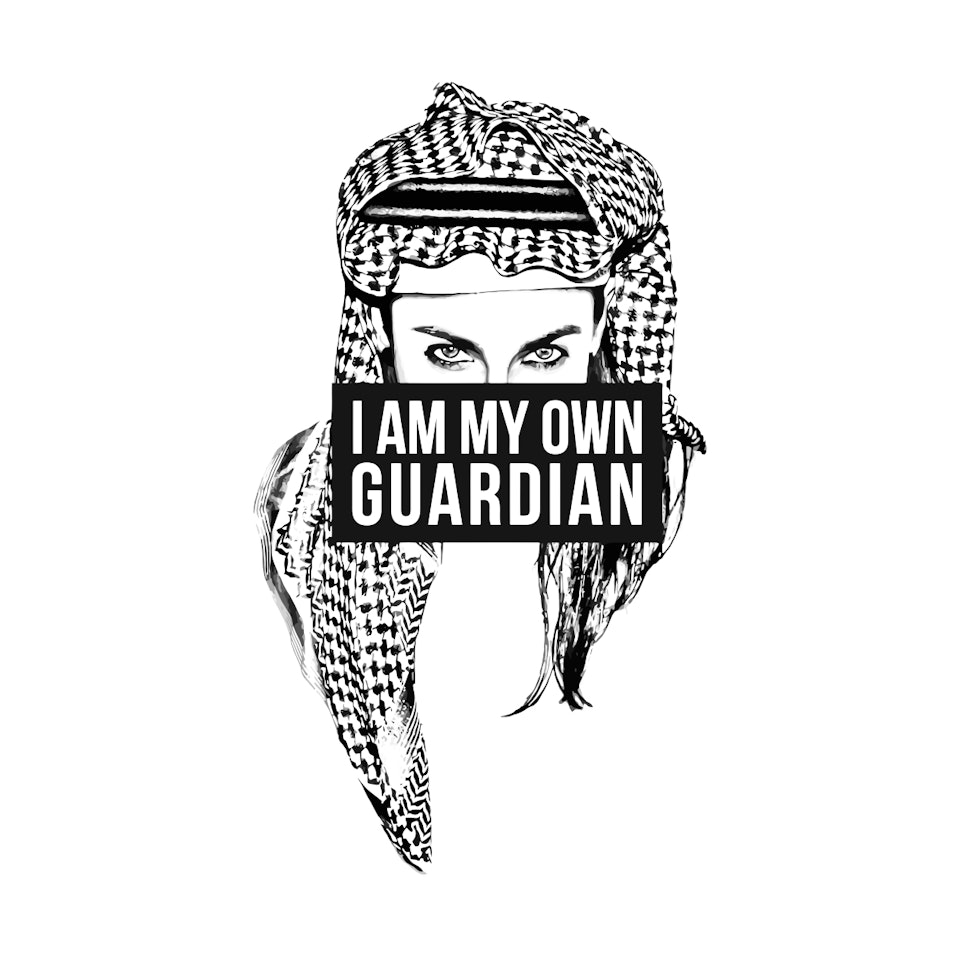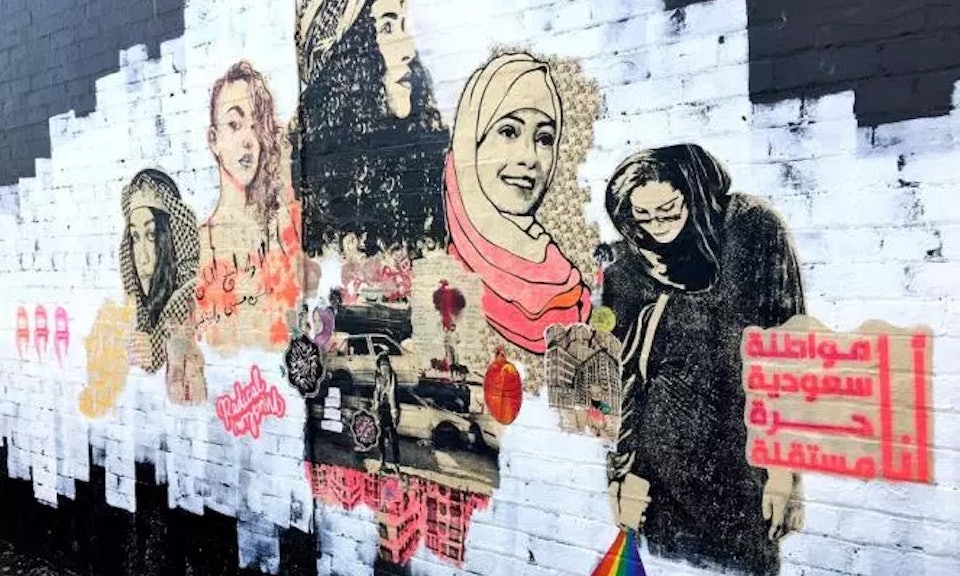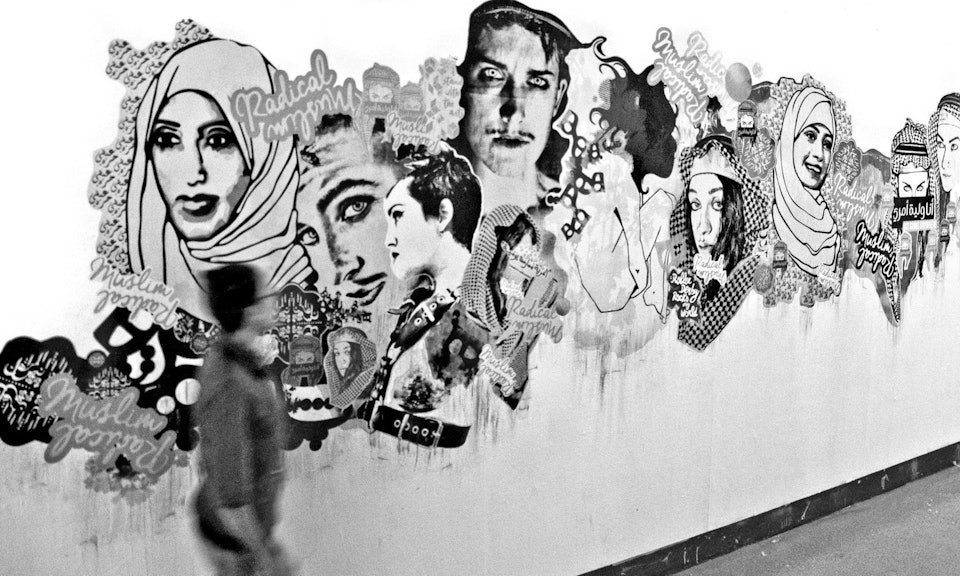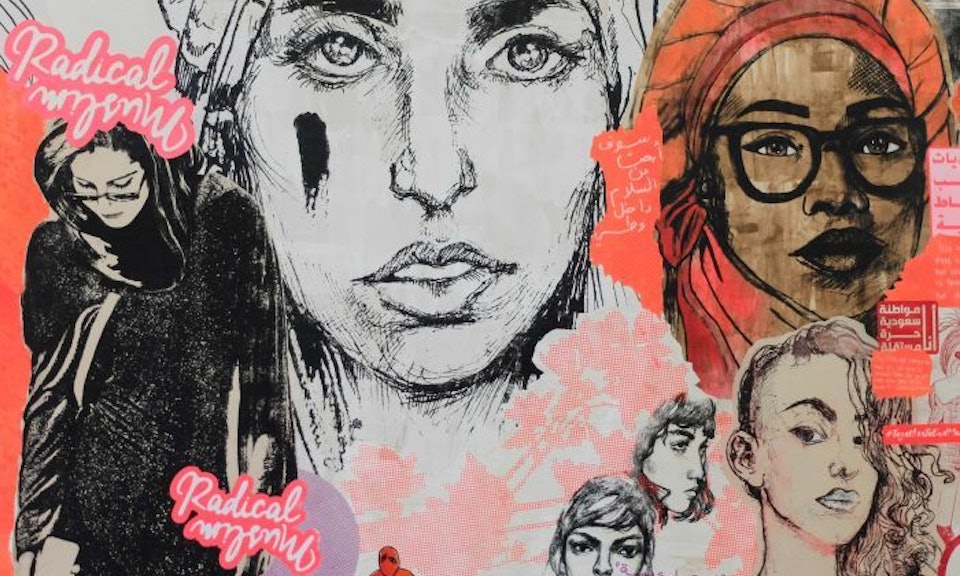Artist Profile
Ms Saffaa
Saudi Arabia
Status: Self-Exiled

A multi-talented street artist, activist, and Ph.D. student, Ms Saffaa's artwork has empowered and fueled a social movement opposing Saudi Arabia’s male guardianship laws. These laws mandate that women seek approval from men, such as family members or husbands, to conduct a variety of critical tasks, from driving to obtaining health care and even to leaving prison. Since 2012, Saffaa, who maintains partial anonymity to avoid harassment, has used her artwork to amplify the voices of Saudi women and raise visibility about the repressive conditions and restrictions they face. Currently living in Australia, she has exhibited her work at the Islamic Museum of Australia, in various galleries across Sydney, and internationally. Saffaa has also been commissioned to create murals in Sydney, Melbourne, and Brisbane, and her work has been featured by international media outlets such as The Huffington Post, The Guardian, and The Wall Street Journal.
In 2009, Saffaa left Saudi Arabia to study at Sydney College of the Arts (SCA) in Australia. Even after moving, she had several run-ins with Saudi authorities, all related to the country’s outdated and misogynistic guardianship system. In 2012, while studying in Sydney through a Saudi government scholarship, she was told that she had to show proof that a male guardian was living with her. Her brothers were required to fly to Australia to vouch for her so that she could continue her studies, despite being in her early thirties at the time. The hours she spent pleading to Saudi bureaucrats were what initially inspired Ms Saffaa to make protest art. She quickly responded to her experience by creating a portrait of a woman wearing a Saudi shemagh with the phrase “I Am My Own Guardian” covering her mouth.

In 2016, this image was adopted by the rapidly growing grassroots movement against male guardianship laws. Alongside an Arabic hashtag that translates to “Saudi women demand an end to guardianship laws,” the hashtag #IAmMyOwnGuardian went viral, and Saffaa’s poster was plastered on Saudi streets, retweeted, and sold online. Now, it is considered an emblem of the feminist movement in Suadi Arabia. In the age of social media, much of the anti-guardianship movement has been fomented online. In a country that criminalizes public demonstrations, Saffaa emphasizes the critical role social media can play in voicing dissent, reaching a wider audience, and revealing the breadth of Saudi Arabia’s women’s rights movement and the ways women are fighting for their own liberation.
In addition to raising awareness about Saudi Arabia’s male guardianship laws, Saffaa hopes her art will lead to international recognition of the brave Saudi women behind the movement who continue advocating for their human rights despite the threat of reprisal. In Saudi Arabia, activist activities, such as organizing peaceful protests and criticizing the governmen, are all considered crimes that can be punishable by travel bans, imprisonment, and even death. A number of Saudi women have been imprisoned for these reasons, including Loujain al-Hathloul, who was arrested in May 2018 after campaigning against Saudi Arabia’s driving ban. Al-Hathloul, along with many other women’s rights and anti-guardianship activists, remains behind bars. Some activists face the death penalty. Despite the grave dangers, these courageous women continue to fight for a better future.

Saffaa has also experienced backlash for her artwork, becoming a target of harassment, trolling, and vandalism. In 2017, a self-funded mural in Melbourne of female Saudi activists and artists in headscarves, accompanied by Saudi poetry and the words “radical Muslim,” was defaced overnight after taking ten eight-hour days to complete. Saffaa suspects the vandalism was a product of Islamophobia in a time of rising anti-Muslim sentiments and an international increase in hate crimes against Muslims.
“I feel like it’s not just an attack on me but them too,” Saffaa stated, referring to the Saudi women featured in her work. “What do I tell these women? You have to fight the misogynist men back home and the Islamophobic racist bigots in this country?”

Despite the challenges Ms Saffaa has faced, the artist’s drive remains unhindered. In January 2019, Saffaa collaborated with PEN America to commemorate the 100th day of the assassination of Saudi journalist, Washington Post contributor, and U.S. resident Jamal Khashoggi. A social media campaign was launched to celebrate Khashoggi’s life and to call for justice for his murder, and Saffaa co-designed a stunning graphic of Khashoggi alongside artist Molly Crabapple for the centerpiece image. Saffaa’s commitment to women’s freedom from male guardianship laws and her support for women-led movements in Saudi Arabia continues to inspire other artists and activists worldwide.
By Lucia Canton, January 2020


